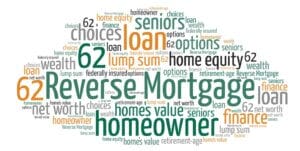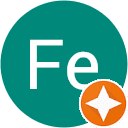Are you in search of lenders near you? Look no further! My name is Wendy Landeros, and I am a Mortgage Loan Officer based in California. With years of experience in the industry, I am dedicated to helping individuals like you find the right financing options for their dream homes. Whether you are a first-time homebuyer or looking to refinance, I am here to guide you through the process and provide personalized solutions tailored to your needs. Give me a call at 925-234-1912, and let’s discuss how I can assist you in achieving your homeownership goals.
1. What services do you offer as a Mortgage Loan Officer?
As a Mortgage Loan Officer, I provide a range of services to help individuals secure mortgage loans. I work with clients to understand their financial goals and help them navigate the mortgage application process. Whether you are a first-time homebuyer or looking to refinance your existing mortgage, I can assist you in finding the right loan options, explaining the terms and conditions, and guiding you through the paperwork.
I am also available to answer any questions you may have about the mortgage process, provide information on current interest rates, and help you understand the various loan programs available to you. My goal is to make the mortgage application process as smooth and stress-free as possible for my clients.
2. How can I contact you if I have questions or need assistance?
You can reach me directly at 925-234-1912. I am available during business hours to answer any questions you may have or provide assistance with your mortgage needs. Whether you prefer to call me or send me an email, I am here to help you throughout the entire process. I understand that obtaining a mortgage can be a complex and overwhelming task, so please don’t hesitate to reach out to me for support.
Additionally, if you prefer to meet in person, I am more than happy to schedule a consultation at a time and location convenient for you. I want to ensure that you have all the information you need to make informed decisions about your mortgage, so please feel free to contact me at any time.
3. Can I get a mortgage loan if I have a low credit score?
While having a low credit score can make it more challenging to qualify for a mortgage loan, it is not impossible. Many lenders offer loan programs specifically designed for individuals with less-than-perfect credit. These programs may have higher interest rates or require a larger down payment, but they can still provide an opportunity for you to become a homeowner.
As a Mortgage Loan Officer, I can review your credit history, assess your financial situation, and help you explore loan options that may be available to you. It’s important to keep in mind that improving your credit score over time can also increase your chances of qualifying for more favorable loan terms. I can provide guidance on steps you can take to improve your credit and increase your chances of getting approved for a mortgage loan.
4. What documents do I need to provide when applying for a mortgage loan?
When applying for a mortgage loan, there are several documents you will typically need to provide to the lender. These documents help the lender assess your financial situation and determine your eligibility for a loan. Some common documents include:
- Proof of income, such as pay stubs or tax returns
- Bank statements to verify your assets and savings
- Identification documents, such as a driver’s license or passport
- Proof of residence, such as utility bills or rental agreements
- Documentation of any outstanding debts or loans
It’s important to gather these documents ahead of time to ensure a smooth application process. I can provide you with a comprehensive list of required documents based on your specific situation, so you are well-prepared when applying for a mortgage loan.
5. How long does the mortgage application process typically take?
The length of the mortgage application process can vary depending on various factors, including the complexity of your financial situation, the loan program you choose, and the efficiency of the lender. On average, the process can take anywhere from 30 to 60 days.
During this time, you will need to provide all the required documentation, undergo a thorough financial assessment, and await approval from the lender. It’s important to be proactive in gathering the necessary documents and promptly responding to any requests from the lender to expedite the process.
As a Mortgage Loan Officer, I will work closely with you throughout the application process, keeping you informed of the progress and addressing any concerns or questions you may have along the way. My goal is to ensure a smooth and efficient process, so you can move forward with your homeownership goals as quickly as possible.
6. What factors are considered when determining mortgage loan eligibility?
When determining mortgage loan eligibility, lenders consider several factors to assess your ability to repay the loan. These factors typically include:
- Credit score and credit history
- Income and employment stability
- Debt-to-income ratio
- Down payment amount
- Property value and appraisal
Each lender may have their own specific criteria and requirements, so it’s important to work with a knowledgeable Mortgage Loan Officer who can guide you through the process and help you understand the factors that may impact your eligibility. I can review your financial situation and provide personalized advice on how to improve your eligibility for a mortgage loan.
7. What types of mortgage loans do you offer?
As a Mortgage Loan Officer, I offer a variety of mortgage loan options to meet the diverse needs of my clients. Some of the common loan types I can assist you with include:
- Conventional loans: These loans are not insured or guaranteed by the government and typically require a higher credit score and down payment.
- FHA loans: Backed by the Federal Housing Administration, FHA loans are popular among first-time homebuyers and individuals with lower credit scores.
- VA loans: Available to eligible veterans and active-duty military personnel, VA loans offer favorable terms and often require no down payment.
- USDA loans: These loans are designed for individuals in rural areas and offer low or no down payment options.
- Jumbo loans: Jumbo loans are used for higher-priced properties that exceed the conforming loan limits set by Fannie Mae and Freddie Mac.
I can provide guidance on the different loan options available to you and help you choose the one that best fits your financial situation and homeownership goals.
8. What are closing costs and how much should I expect to pay?
Closing costs are the fees and expenses associated with the finalization of your mortgage loan. These costs typically include items such as loan origination fees, appraisal fees, title insurance, and attorney fees, among others.
The total amount of closing costs can vary depending on factors such as the loan amount, property location, and the specific terms of your loan. As a general rule of thumb, closing costs typically range from 2% to 5% of the loan amount.
I can provide you with a detailed estimate of the closing costs you can expect to pay based on your specific loan scenario. It’s important to budget for these costs in addition to your down payment to ensure you have a clear understanding of the total expenses involved in the mortgage process.
9. Can I lock in my interest rate?
Yes, it is possible to lock in your interest rate when applying for a mortgage loan. Interest rate lock agreements allow borrowers to secure a specific interest rate for a set period of time, typically between 30 and 60 days.
Locking in your interest rate can provide peace of mind and protection against potential rate increases while your loan is being processed. However, it’s important to note that interest rate locks may come with certain conditions and fees. I can provide guidance on the best time to lock in your rate and help you understand the terms and conditions associated with rate locks.
Keep in mind that interest rates can fluctuate daily, so it’s important to stay in close communication with me throughout the mortgage process to ensure you make an informed decision about when to lock in your rate.
10. What is the difference between pre-qualification and pre-approval?
Pre-qualification and pre-approval are two different stages in the mortgage application process. Pre-qualification is an initial assessment of your financial situation based on the information you provide to the lender. It gives you a general idea of how much you may be able to borrow but does not guarantee loan approval.
On the other hand, pre-approval is a more detailed and thorough process that involves submitting the necessary documentation to the lender for review. It provides a more accurate assessment of your eligibility for a mortgage loan and gives you a better understanding of your purchasing power when house hunting.
Pre-approval is generally recommended as it strengthens your position as a buyer and allows you to make more competitive offers on properties. I can guide you through the pre-approval process and help you gather the necessary documents to increase your chances of getting pre-approved for a mortgage loan.
11. What is the minimum down payment required for a mortgage loan?
The minimum down payment required for a mortgage loan can vary depending on the loan program and your financial situation. Conventional loans typically require a down payment of at least 3% to 5% of the purchase price, while FHA loans may require as little as 3.5% down.
There are also loan programs, such as VA loans for eligible veterans and active-duty military personnel, that offer the option of no down payment. Additionally, some down payment assistance programs may be available in certain areas to help borrowers with limited funds for a down payment.
I can provide you with information on the different loan programs and down payment options available to you based on your specific circumstances. Together, we can determine the most suitable down payment strategy for your homeownership goals.
12. Can I get a mortgage loan if I am self-employed?
Yes, it is possible to get a mortgage loan if you are self-employed. However, the process may be slightly different compared to individuals who receive regular W-2 income. As a self-employed borrower, you may need to provide additional documentation to demonstrate your income stability and ability to repay the loan.
Some common documents you may need to provide as a self-employed borrower include business tax returns, profit and loss statements, and bank statements. It’s important to work with a Mortgage Loan Officer who has experience working with self-employed borrowers to ensure a smooth application process.
I can guide you through the mortgage application process and help you gather the necessary documentation to strengthen your loan application as a self-employed borrower.
13. Can I refinance my existing mortgage loan?
Yes, it is possible to refinance your existing mortgage loan. Refinancing involves replacing your current loan with a new loan that has more favorable terms, such as a lower interest rate or a shorter loan term.
There are several reasons why homeowners choose to refinance, including reducing monthly payments, accessing home equity, or switching from an adjustable-rate mortgage to a fixed-rate mortgage. Refinancing can be a smart financial move if it aligns with your goals and helps you save money over the long term.
I can assist you in evaluating your refinancing options and determining whether it makes sense for your specific situation. Together, we can determine if refinancing is the right choice for you and guide you through the refinancing process.
14. Are there any costs associated with working with a Mortgage Loan Officer?
As a Mortgage Loan Officer, my services are typically free of charge to borrowers. I am compensated by the lender through a commission, which is based on the loan amount and terms.
It’s important to note that there may be certain fees associated with the mortgage process, such as appraisal fees, credit report fees, and closing costs. However, these fees are separate from the fees charged by a Mortgage Loan Officer and are typically paid directly to the service providers involved in the loan process.
I am committed to providing transparent and upfront information about any potential costs associated with your mortgage loan. I will work closely with you to ensure you have a clear understanding of the fees involved and help you navigate the mortgage process in a financially responsible manner.
15. Can I get a mortgage loan if I have a previous bankruptcy or foreclosure?
Having a previous bankruptcy or foreclosure on your credit history can make it more challenging to qualify for a mortgage loan. However, it is still possible to obtain a mortgage loan, especially if sufficient time has passed since the bankruptcy or foreclosure occurred.
Each loan program has specific waiting periods before borrowers with previous bankruptcies or foreclosures can be eligible. For example, FHA loans typically require a waiting period of two years after a Chapter 7 bankruptcy and three years after a foreclosure.
I can review your specific financial situation and provide guidance on the loan programs and waiting periods that may apply to you. It’s important to remember that rebuilding your credit and demonstrating responsible financial behavior can greatly improve your chances of qualifying for a mortgage loan after bankruptcy or foreclosure.
16. What is the difference between a fixed-rate mortgage and an adjustable-rate mortgage?
A fixed-rate mortgage is a type of mortgage loan where the interest rate remains the same for the entire duration of the loan. This means that your monthly mortgage payment will also remain constant throughout the term of the loan, providing stability and predictability.
In contrast, an adjustable-rate mortgage (ARM) has an interest rate that can fluctuate over time. The initial interest rate is typically lower than that of a fixed-rate mortgage but can increase or decrease periodically based on market conditions. This means that your monthly mortgage payment can vary throughout the term of the loan.
Choosing between a fixed-rate mortgage and an adjustable-rate mortgage depends on your financial goals and risk tolerance. I can provide you with information on both options and help you determine which type of mortgage is best suited for your needs.
17. Can I get a mortgage loan if I am a first-time homebuyer?
Absolutely! Many loan programs offer special benefits and incentives for first-time homebuyers. These programs are designed to make homeownership more accessible and affordable for individuals who have not owned a home in the past.
Some of the benefits of first-time homebuyer programs may include lower down payment requirements, reduced interest rates, and assistance with closing costs. These programs can vary depending on your location and the loan program you qualify for.
I can provide you with information on the first-time homebuyer programs available in your area and guide you through the application process. My goal is to help you achieve your dream of homeownership and ensure you take advantage of any available benefits and incentives.
18. Can I get a mortgage loan if I have student loan debt?
Having student loan debt does not necessarily disqualify you from obtaining a mortgage loan. However, it can impact your debt-to-income ratio, which is an important factor lenders consider when determining your eligibility for a loan.
If you have significant student loan debt, it’s important to demonstrate that you have a stable income and a solid repayment plan in place. Lenders will typically review your debt-to-income ratio to ensure that your total monthly debt payments, including student loans, do not exceed a certain percentage of your monthly income.
I can review your financial situation, including your student loan debt, and provide guidance on how to strengthen your loan application and improve your chances of qualifying for a mortgage loan.
19. Can I get a mortgage loan if I am currently unemployed?
Being unemployed can make it more challenging to qualify for a mortgage loan since lenders typically require proof of income to assess your ability to repay the loan. However, there may be other options available to you depending on your specific circumstances.
If you have a spouse or partner who is employed and has a stable income, you may be able to include their income on the loan application to improve your eligibility. Additionally, if you have other sources of income, such as rental income or investments, these can also be considered by lenders.
I can review your financial situation and provide guidance on the options available to you as an unemployed borrower. It’s important to be transparent about your employment status and work with a Mortgage Loan Officer who understands the unique challenges you may face.
20. Can I get a mortgage loan if I have a high debt-to-income ratio?
A high debt-to-income ratio can make it more challenging to qualify for a mortgage loan since lenders typically have maximum limits on the ratio they consider acceptable. However, there may still be options available to you depending on your specific situation.
If you have a high debt-to-income ratio, it’s important to demonstrate compensating factors that can offset the higher ratio. These factors may include a high credit score, a stable employment history, or a larger down payment.
I can review your financial situation and help you understand the impact of your debt-to-income ratio on your loan eligibility. Together, we can explore potential solutions and loan programs that may be suitable for your circumstances.
What NOT to tell your LENDER when applying for a MORTGAGE LOAN
Conclusion: Lenders Near Me – Wendy Landeros, Mortgage Loan Officer, California
In conclusion, if you are looking for lenders near you in California, Wendy Landeros is the Mortgage Loan Officer to contact. With her expertise and experience, she can provide the guidance and assistance you need to secure a mortgage loan. You can reach Wendy Landeros at 925-234-1912.
Wendy Landeros understands the unique needs of borrowers in California and can offer a wide range of loan options tailored to your specific situation. Whether you are a first-time homebuyer or looking to refinance, Wendy Landeros can help you navigate the complex lending process.
As a Mortgage Loan Officer, Wendy Landeros is committed to providing personalized service and ensuring a smooth and efficient loan application process. With her attention to detail and extensive knowledge of the California real estate market, you can trust Wendy Landeros to find the best loan terms and rates for you.
Contact Wendy Landeros today at 925-234-1912 to discuss your mortgage loan needs. She is dedicated to helping you achieve your homeownership goals and will work tirelessly to find the right loan solution for you. Don’t hesitate to reach out and get started on your journey to homeownership with Wendy Landeros as your trusted Mortgage Loan Officer.”



















